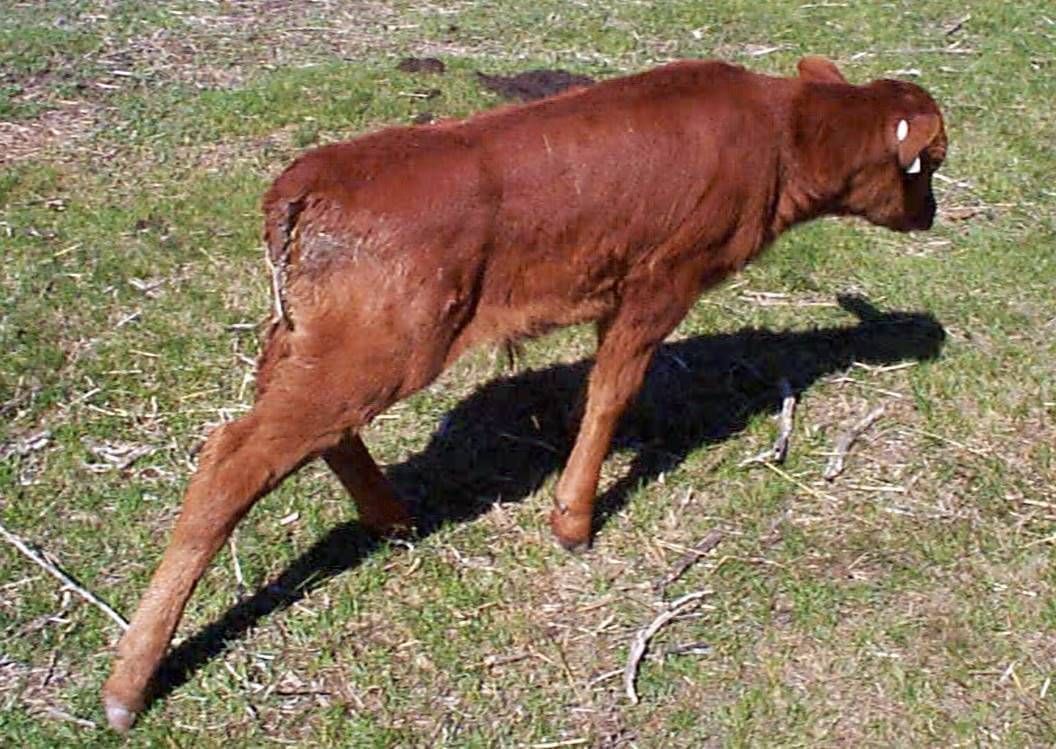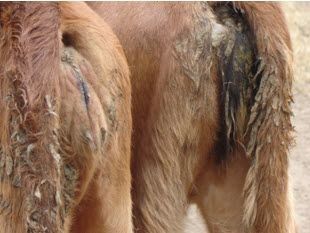Coccidiosis
Coccidiosis is now quite common and is easily recognised as a scour where the muck is spread either side of the pin bones and the calf is continually waving its tail from one side to the other to keep it off the sore anal area.
Coccidiosis scours will linger far longer than other scour types and won't be cured with worm drenches. Even full grown cows can be found displaying the symptoms.


Many of the meal concentrates and some milk powders have coccidiostats present in them . Standard preparations are also available from the vets.
Prevention
Things you can do to prevent further infections include.
Once the calves have been fed milk or concentrates, move them away from the area. Left there they will hang about and muck their troughs causing further infection.
Sparrows and other birds will hop onto calf droppings and then into the trough contaminating the feed. Turning the troughs upside down between feeds and feeding on dusk (birds go to roost far earlier than dark) will help.
Treatment
Most commercially available calf meals include coccidiostats meaning it is quite possible that a calf has had subclinical coccidiosis which the coccidiostat is keeping under control but not eliminating. This is where a coccidiostat treatment is a poor substitute for good hygiene and cultural practices. It is quite probable the coccidiostat can have a negative effect on rumen micro flora and fauna populations through its continued use and by not addressing the root cause of the infections.
Ask your vet to advise you on treatment. If he or she suggests a faecal test is required, ask for a screen test to be taken for the causes of diarrhoea as it may not be coccidiosis (a bacteria) but could be parasites (worms), or viral and even a combination. Your vet should also be able to advise you on ways to eliminate future infection beside just advising treatment procedures.
Baycox is a veterinary treatment for Coccidiosis.
